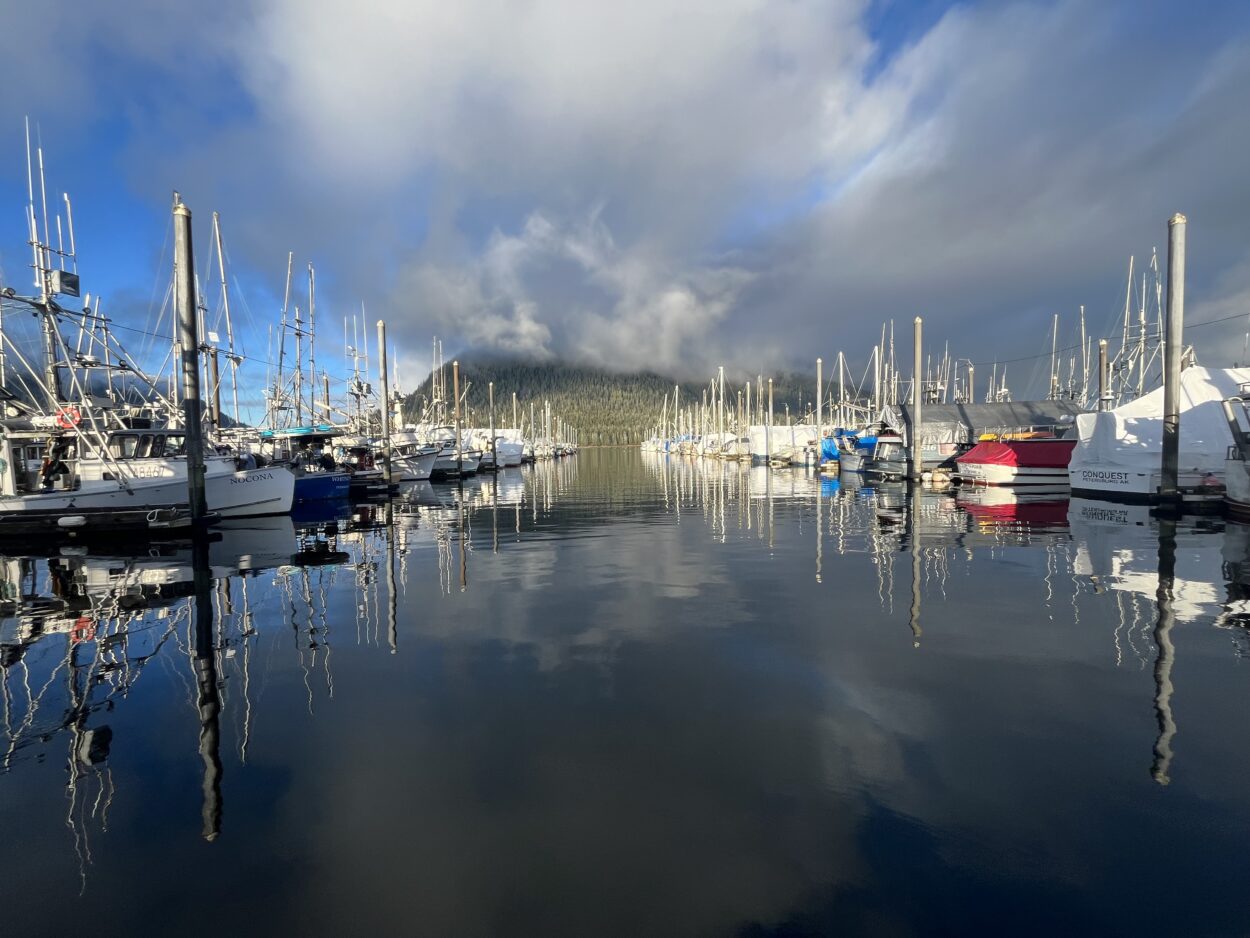
Gov. Mike Dunleavy introduced a pair of bills last month that would allow electronic monitoring aboard commercial fishing vessels in state fisheries. That electronic monitoring could be used in place of mandatory observers aboard fishing vessels. But some in the fishing industry are wondering why it’s necessary, since only a small number of state-managed fisheries require onboard observation. KFSK’s Hannah Flor has the story.
Nels Evens is a longliner and gillnetter, and the executive director of the Petersburg Vessel Owners Association. He says he’s not sure what the bills’ aim is.
“Because it is so broad, and we don’t understand what it’s really trying to get at, we’re not supportive of it,” he said.
The pair of bills – Senate Bill 209 and House Bill 294 – stem from a discussion at last year’s Board of Fisheries meeting. The Board was trying to figure out how to enforce regulations that require Area M fishermen to keep chum salmon, instead of tossing them back in favor of much more valuable King salmon. Area M is along the Alaska Peninsula and Eastern Aleutians. It intercepts some chum salmon bound for western Alaska.
Often fisheries enforcement relies on observer programs – people go out on the boats to report on the actions of the fishermen. But boats are often small, and it can be hard to find room for an extra person. When the board looked into the possibility of electronically monitoring state fisheries, they found they’d need to change the law to allow it.
The bills would give the state Board of Fisheries the authority to require electronic monitoring in any state-managed fishery. According to a letter attached to the bills, examples of electronic monitoring could include video cameras and gear sensors that would capture information on fishing locations and catches.
Evens said creating a statewide bill to fix a very specific problem is overreach.
“I think the worst fear would be that it’s used for full, full electronic modern monitoring implementation for all vessels and all statewide waters, because that’s ultimately what it would allow for, because it’s so broad and its reach,” he said.
Fishermen have to pay to have observers on their boats. They would also have to pay to install and maintain the electronic monitoring equipment.
The Aleutians East Borough is home to many Area M fishermen. Last year the Borough sent a letter to the Board of Fish in opposition to electronic monitoring of state fisheries. They estimated the cost of installing monitoring equipment at 17 thousand dollars per boat, plus another five thousand dollars per year in maintenance. That’s about the same price as it is to set up and maintain cameras for federal fisheries that require monitoring, like halibut, according to Devren Bennett of Homeport Electronics in Petersburg.
Don Spigelmyre is Southeast fleet manager for OBI Seafoods. He said he’s worried about the cost to fishermen.
“With the downturn in prices in the commercial fishery, in the last couple of years in particular, I am concerned that more additional cost added on to fishermen that are barely hanging on now, might push them over the edge financially,” he said.
If the bills become law, the state Department of Fish and Game will manage the electronic monitoring program. Commissioner Doug Vincent-Lang would have statutory authority to implement it. He said the cost to fishermen is a consideration for the Board of Fish when deciding whether to monitor a particular fishery. And he said that just because electronic monitoring is available, doesn’t mean it’ll be used.
“This bill simply adds to the toolbox for the Board of Fisheries to consider when they want to have some kind of monitoring system for commercial fishery and electronic monitoring, in addition to the opportunity to have an observer program,” he said.
Currently, only a few state-managed commercial fisheries have mandatory observer programs – for scallops and some crab. Vincent-Lang said that with electronic monitoring as an option, it is possible that the Board of Fish would decide to monitor more fisheries.
“I think a fisherman would rather have electronic monitoring than the option of having to put an observer on board their boat,” he said.
In a letter attached to the bill, the state department reported there would be no cost to the STATE associated with the legislation, but funding probably would be needed to implement the program. The department would request that funding through the budget.
Nominees to the Board of Fish are appointed by the governor and approved by the Alaska Legislature.
A hearing for SB 209 will take place Wednesday, Feb 7th, at 1:30 pm.m Alaska time.
A previous audio version of this story inaccurately stated that gillnetters in Area M are subject to mandatory retention. Both seiners and gillnetters in Area M are subject to mandatory retention.











